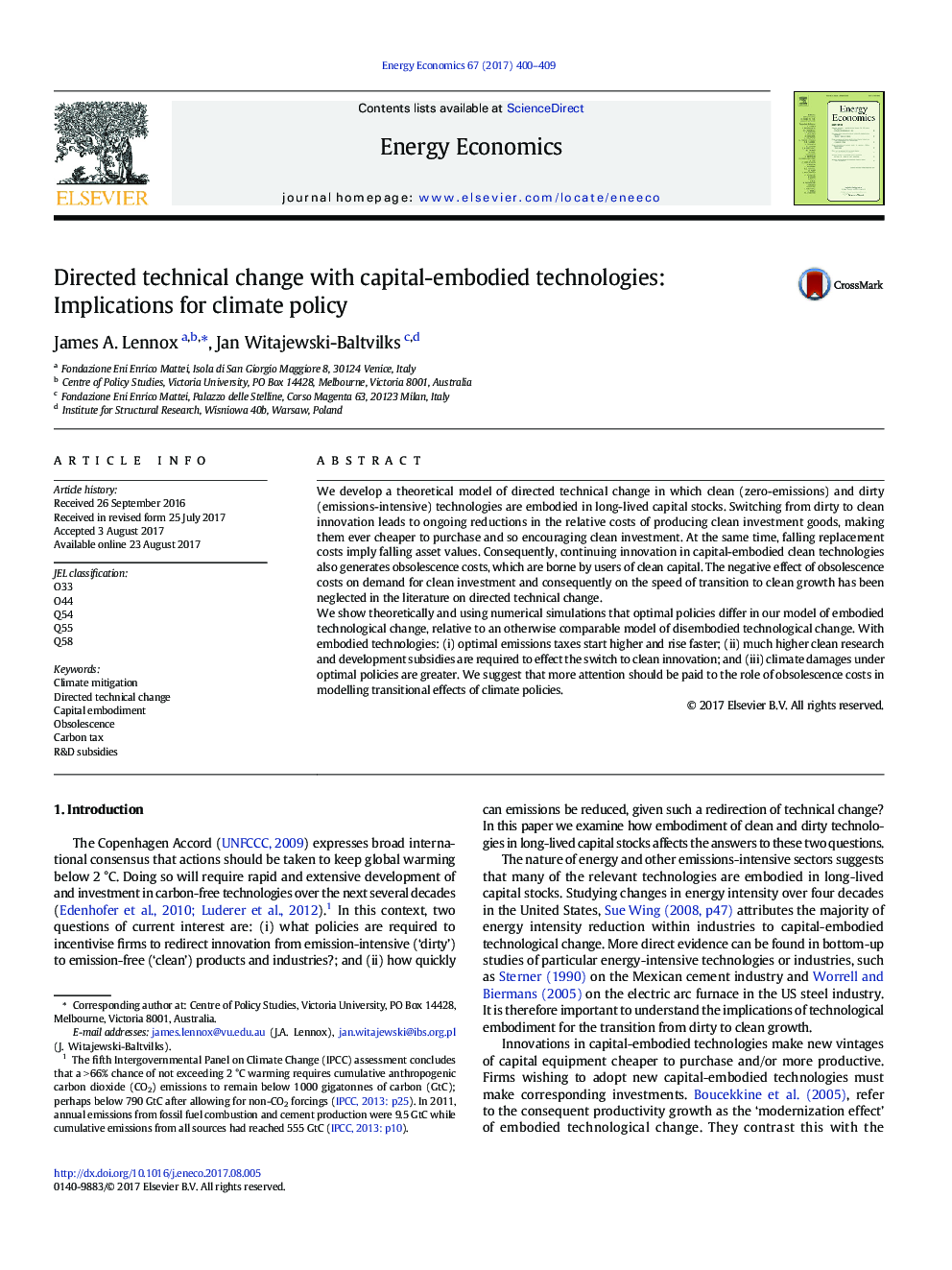| کد مقاله | کد نشریه | سال انتشار | مقاله انگلیسی | نسخه تمام متن |
|---|---|---|---|---|
| 5063601 | 1476697 | 2017 | 10 صفحه PDF | دانلود رایگان |
- Innovation in technologies embodied in capital generates obsolescence costs.
- Obsolescence costs slow deployment of clean technologies.
- Capital embodiment implies higher and faster rising emissions taxes are optimal.
- Optimal subsidies for clean innovation are higher with capital embodiment.
We develop a theoretical model of directed technical change in which clean (zero-emissions) and dirty (emissions-intensive) technologies are embodied in long-lived capital stocks. Switching from dirty to clean innovation leads to ongoing reductions in the relative costs of producing clean investment goods, making them ever cheaper to purchase and so encouraging clean investment. At the same time, falling replacement costs imply falling asset values. Consequently, continuing innovation in capital-embodied clean technologies also generates obsolescence costs, which are borne by users of clean capital. The negative effect of obsolescence costs on demand for clean investment and consequently on the speed of transition to clean growth has been neglected in the literature on directed technical change.We show theoretically and using numerical simulations that optimal policies differ in our model of embodied technological change, relative to an otherwise comparable model of disembodied technological change. With embodied technologies: (i) optimal emissions taxes start higher and rise faster; (ii) much higher clean research and development subsidies are required to effect the switch to clean innovation; and (iii) climate damages under optimal policies are greater. We suggest that more attention should be paid to the role of obsolescence costs in modelling transitional effects of climate policies.
Journal: Energy Economics - Volume 67, September 2017, Pages 400-409
